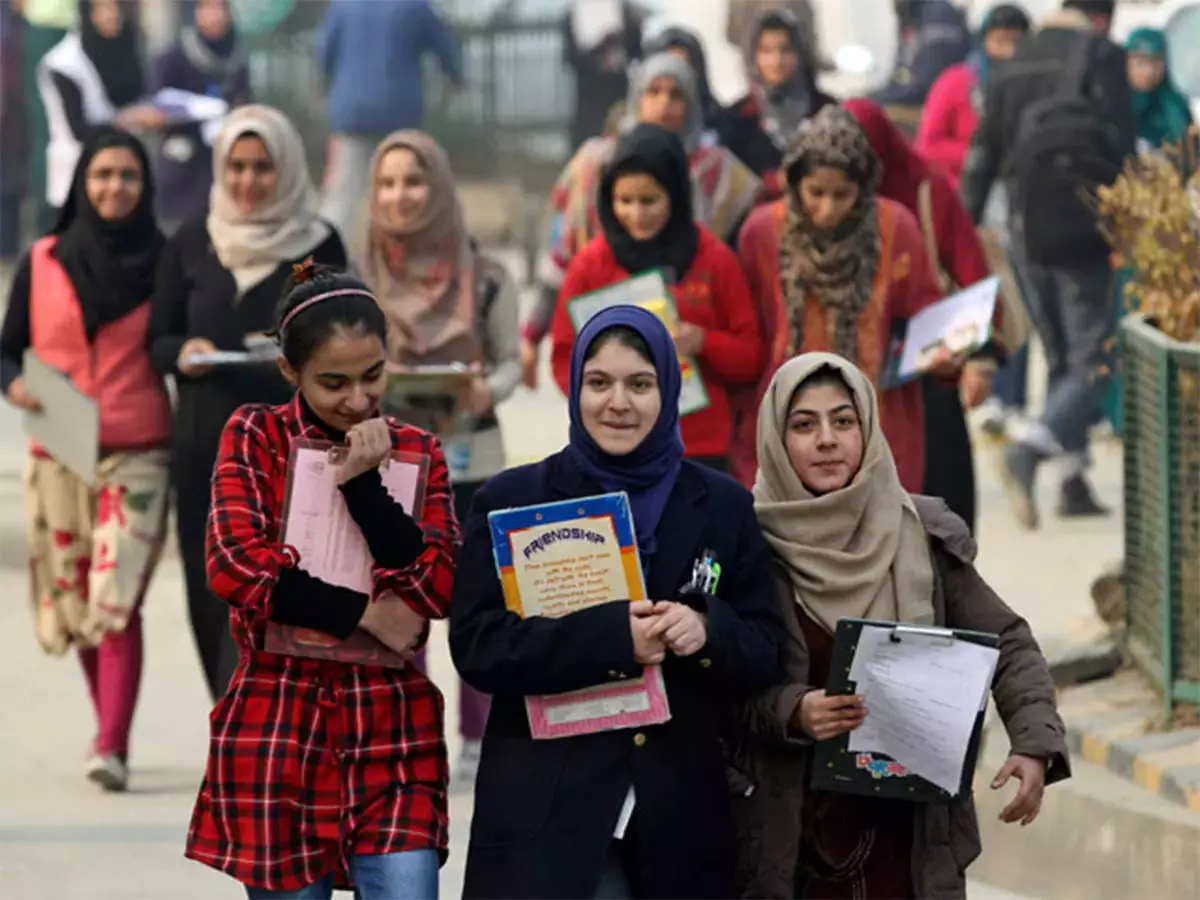Scholarly pursuit
The women-led higher education system in Kashmir, emboldened by comprehensive autonomy provided to university authorities, can facilitate societal transformation in the valley

Kashmir is fast becoming a vibrant economy. The main wealth of Kashmir are its beautiful landscapes and weather, but the more important catalytic agent is its education system which has traditionally been highly intellectual. Kashmir’s intellectual sphere has also been women-led, as depicted in texts like Nilmatpuran, Rajtarangini and others. Extraordinary women like Lalleswari, popularly known as Lal Ded, Habba Khatoon, and others, played pivotal roles. Unfortunately, women took a back seat in the last few centuries, but they are now reclaiming their lost position in recent years. It is encouraging to see that in the history of Kashmir University, for the first time, a lady has been selected to lead the institution – Nilofer Khan, Professor of Kashmir University itself. She is known to be a tough lady and had successfully occupied various administrative positions in the university before being selected as vice-chancellor. The decision of the Lieutenant Governor and Chancellor, Sri Manoj Sinha, to appoint the first lady vice-chancellor of the university is much applauded by one and all.
In most societies, and more so in the Kashmiri society, change has to be women-led. One has to take part in the social and intellectual discourses to understand this. During the September 5-6, 2023, the Department of Sociology of the University organised a national seminar on ‘Role of Universities in Social Transformation’ led by the very vibrant Head of the Sociology Department, Professor Aneesa Shafi, once again a female scholar and academic leader in her own right. A study of the seminar reveals that most of the papers were by women, especially young scholars, and they were more active in discussions and debates. Boys were less in number. Another very encouraging and interesting observation was the presence of young girls in overwhelming majority in the second line who would lead the academic scene in the next decades. In private discussion, girls revealed that the campus is very safe and they never faced any discrimination or ragging. It can be read on the wall that by 2035, women will lead the Kashmiri intellectual society. Those familiar with the Kashmir Valley will concur that Jesuit schools have played a significant role in shaping this situation. These institutions have been in existence for a long time and have consistently served as pillars of education for the valley's youth.
As the seminar was on the role of universities itself, many issues related to the working of the universities came up. The house was obviously divided. ‘Obviously’ because academics rarely agree on issues and that is the beauty of the university system. Intellectuals disagree but finally agree to disagree. Issues related to university and ‘Gender, Equality, Society and Autonomy’ were discussed, especially in the light of recent developments and the National Education Policy 2020. But what was most apparently noticeable was the strong support and enthusiasm for the National Education Policy 2020. Most, rather almost all the participants, young and old, support the NEP but have apprehensions about the implementation of the policy. The House found the policy too positive and transformative that it could not be true. Like all academic debates, the government was in the dock, but once again, the interventions by the present Chancellor and Lieutenant Governor Sinha were applauded by all — a very encouraging sign for the future of the state. The attitude of the officials and the government department was, definitely, like in most other states, criticised for being slow and anti-academia.
Universities are swiftly evolving into battlegrounds between the Governor, who also serves as Chancellor of the state's universities, and the Chief Minister representing the Government. Thanks to the present administrative structure in J&K, Lieutenant Governor Manoj Sinha, who boasts of an impeccable political career and an impressive academic track record, enjoys complete autonomy in decision-making for universities. His decisions have been considered transparent and have received widespread acclaim. He is extending autonomy, a long-thwarted prerogative in higher education, to empower universities in J&K to make informed and research-backed decisions. A significant factor contributing to the current positive atmosphere in the university is the extension of autonomy to university authorities and departments.
Autonomy for academia is greatly needed, as it allows the government and society to know in advance what the society is thinking today and how it will react tomorrow. The seminar conducted by the Sociology Department served as an eye-opener. There appeared to be a very positive attitude for the Government and the changes. This seminar, held in a face-to-face format for the first time in a long while, witnessed a significant turnout of experts and participants from outside Kashmir. Local academics and research scholars engaged in free and frank interactions, which goes much in favour of restoring normalcy on university campuses in J&K. This was one of the first F2F seminars after a long time, and should be encouraged and, in fact, promoted.
Universities should be allowed to engage in debates on issues that confront the State. The resulting outcomes can provide valuable insights for the Government. In many states across the country, governments are reducing funding for such debates and discussions, perhaps because it does not push their political agenda. The J&K Government deserves applause for its support of academia and for fostering discussions in a free and fair environment. The only reason behind this support is the complete autonomy granted to the Lt. Governor in managing universities without government interference. Furthermore, the Lt. Governor himself was a student activist turned politician, which enhances his understanding of the significance of university autonomy and its benefits for the nation. One would eagerly anticipate more such seminars, which will significantly contribute to the restoration of normalcy and the exposure of Kashmiri talent to academic institutions outside the region.
The writer is Professor of Education at IGNOU and a Trustee of the India Policy Foundation. Views expressed are personal




